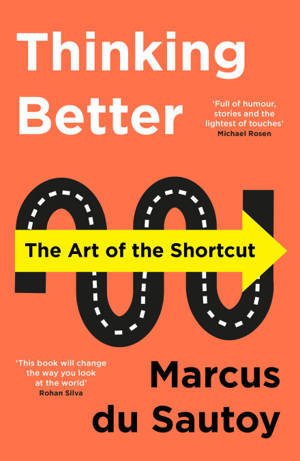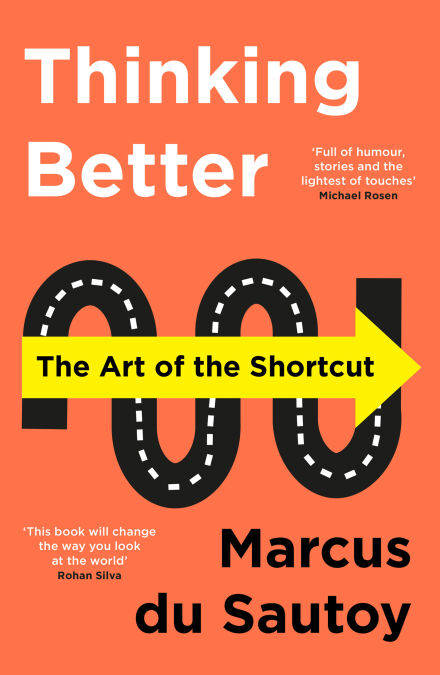
Bedankt voor het vertrouwen het afgelopen jaar! Om jou te bedanken bieden we GRATIS verzending (in België) aan op alles gedurende de hele maand januari.
- Afhalen na 1 uur in een winkel met voorraad
- In januari gratis thuislevering in België
- Ruim aanbod met 7 miljoen producten
Bedankt voor het vertrouwen het afgelopen jaar! Om jou te bedanken bieden we GRATIS verzending (in België) aan op alles gedurende de hele maand januari.
- Afhalen na 1 uur in een winkel met voorraad
- In januari gratis thuislevering in België
- Ruim aanbod met 7 miljoen producten
Zoeken
€ 6,99
+ 6 punten
Uitvoering
Omschrijving
How do you remember more and forget less?
How can you earn more and become more creative just by moving house?
And how do you pack a car boot most efficiently?
This is your shortcut to the art of the shortcut.
Mathematics is full of better ways of thinking, and with over 2,000 years of knowledge to draw on, Oxford mathematician Marcus du Sautoy interrogates his passion for shortcuts in this fresh and fascinating guide. After all, shortcuts have enabled so much of human progress, whether in constructing the first cities around the Euphrates 5,000 years ago, using calculus to determine the scale of the universe or in writing today’s algorithms that help us find a new life partner.
As well as looking at the most useful shortcuts in history – such as measuring the circumference of the earth in 240 BC to diagrams that illustrate how modern GPS works – Marcus also looks at how you can use shortcuts in investing or how to learn a musical instrument to memory techniques. He talks to, among many, the writer Robert MacFarlane, cellist Natalie Clein and the psychologist Suzie Orbach, asking whether shortcuts are always the best idea and, if so, when they use them.
With engaging puzzles and conundrums throughout to illustrate the shortcut’s ability to find solutions with speed, Thinking Better offers many clever strategies for daily complex problems.
How can you earn more and become more creative just by moving house?
And how do you pack a car boot most efficiently?
This is your shortcut to the art of the shortcut.
Mathematics is full of better ways of thinking, and with over 2,000 years of knowledge to draw on, Oxford mathematician Marcus du Sautoy interrogates his passion for shortcuts in this fresh and fascinating guide. After all, shortcuts have enabled so much of human progress, whether in constructing the first cities around the Euphrates 5,000 years ago, using calculus to determine the scale of the universe or in writing today’s algorithms that help us find a new life partner.
As well as looking at the most useful shortcuts in history – such as measuring the circumference of the earth in 240 BC to diagrams that illustrate how modern GPS works – Marcus also looks at how you can use shortcuts in investing or how to learn a musical instrument to memory techniques. He talks to, among many, the writer Robert MacFarlane, cellist Natalie Clein and the psychologist Suzie Orbach, asking whether shortcuts are always the best idea and, if so, when they use them.
With engaging puzzles and conundrums throughout to illustrate the shortcut’s ability to find solutions with speed, Thinking Better offers many clever strategies for daily complex problems.
Specificaties
Betrokkenen
- Auteur(s):
- Uitgeverij:
Inhoud
- Aantal bladzijden:
- 352
- Taal:
- Engels
Eigenschappen
- Productcode (EAN):
- 9780008393939
- Verschijningsdatum:
- 18/08/2021
- Uitvoering:
- E-book
- Beveiligd met:
- Adobe DRM
- Formaat:
- ePub

Alleen bij Standaard Boekhandel
+ 6 punten op je klantenkaart van Standaard Boekhandel
Beoordelingen
We publiceren alleen reviews die voldoen aan de voorwaarden voor reviews. Bekijk onze voorwaarden voor reviews.









